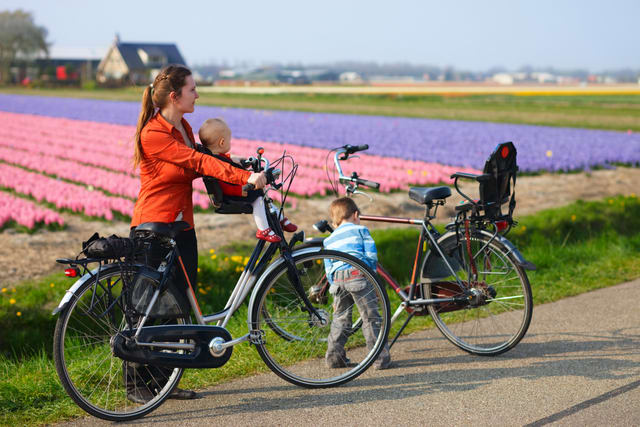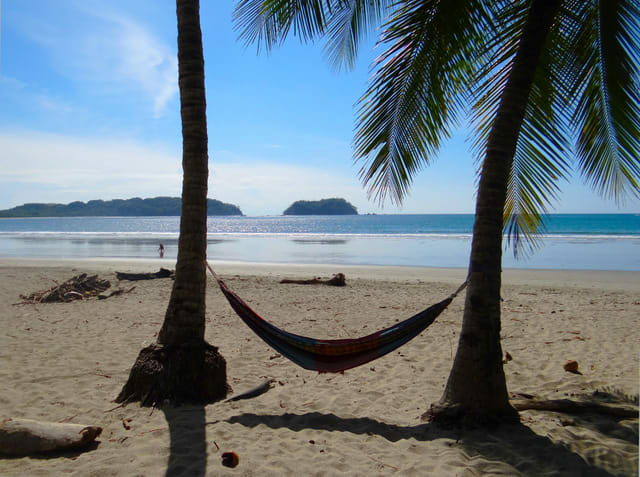Which Countries are Winning at Work-Life Balance?
Many of today’s young people are putting a premium on work-life balance. And while it can sometimes feel like an ever-elusive quest, some countries do offer an appealing inside edge. Here’s a closer look at several destinations that come out ahead.
- Student Tips

The woeful tale of a young Japanese journalist who died after clocking in 159 hours of overtime in a single month was recently featured in The New York Times. Her cause of death? “Karoshi,” AKA “death from overwork.” Even sadder? She’s far from alone. While cases of karoshi are rampant in Japan, the phenomenon is not limited to a single, hard-working country. Similar stories of work-related deaths due to causes ranging from heart attack to suicide have emerged about workers in Indonesia, France, and the US.
Given this tragic trend, it’s hardly a surprise that many of today’s young people are putting a premium on work-life balance. And while it can sometimes feel like an ever-elusive quest, some countries do offer an appealing inside edge, according to the Organization for Economic Co-operation and Development’s (OECD) “Better Life Index.” Here’s a closer look at several destinations that come out ahead.
“The Netherlands performs well in many measures of well-being relative to most other countries in the Better Life Index. The Netherlands ranks top in work-life balance and above the average in income and wealth, jobs and earnings, housing, education and skills, subjective well-being, social connections, environmental quality, personal safety, civic engagement, and health status,” reports OECD.

Echoes BusinessCulture.org, “The Dutch generally work to rule, that is to say that they have clearly defined working hours and they respect them.”
The Netherlands’ perennial status in “happiest countries” roundups speaks for itself. Concludes Mother Nature Network, “It seems we have two options: move to Holland, or learn from their successes and bring some of Holland home. Work less. Live more.”
Each of these Scandinavian countries fared well in the Better Life Index with strong “general satisfaction with life” averages to show for it.
Explains Scandinavian book community and publisher Pine Tribe, “To Scandinavians, the secret is a little thing called lagom, which is naturally a part of life. A Swedish term, lagom (laaw-gohm) roughly means, ‘just the right amount’...Basically, it’s all about moderation, balance, adequate and just right.”

Meanwhile, leading Scandinavian life science cluster Medicon Valley proposes, “The Scandinavian Way is all about balance….It is much more than a dot on the map. It is a state of mind and a way of life. It is the Scandinavian spirit – sustainability, creativity, equality, trust and togetherness.”
3. Spain
Doesn’t mere mention of the word “Spain” bring to mind thoughts of rest and relaxation?

Proposes MyDomaine, “If you’ve ever enjoyed an afternoon siesta in Spain, then you’ll agree this gorgeous country has the work/life situation down to a fine art. Even the Spaniards who work full-time devote more time in their day to ‘leisure and personal care than any other country in the world.’” (There are, however, occasional tradeoffs, such as Spain’s high unemployment rates.)
4. Russia
Yes, you read that right. While Russia has long been synonymous with austerity, the Better Life Index points to significant progress made toward in improving quality of life.

Says MyDomaine, “As the largest country in the world, Russia has over 140 million people, yet it still manages to keep the majority of them happy. A report last year found 78 percent of Russians are the most content they’ve been in 25 years. How is this happiness gauged? By the ‘quality of their family lives’ or to an ‘interest in work life.’ Russians truly value the balance between family and work because out of the 69 percent of people employed, only 0.2 percent work very long hours, which is significantly lower than the OECD average of 9 percent.
5. Costa Rica
While Costa Rica wasn’t included in the OECD’s report, other sources attest to its strength in the area of work-life balance -- especially for expats. Says BusinessInsider of Costa Rica’s inclusion on InterNations Quality of Life index, “Warm weather and improvements in the language category helped boost the country. 79 percent also said they feel ‘at home’ in the local culture.

Need more proof of Costa Rica’s work-life charms? A recent LinkedIn piece shares the story of Denis, a Costa Rican chef who left New York City to return to his homeland in search of balance. Looking back he says, “I was living my life, but not really enjoying it. So it was time to move home. I needed the pura vida.” This term, which Costa Ricans have used for more than 50 years, means “pure life,” and has profound meaning to the people who live there.
Enthuses Chef Denis when asked what his future held, “I can’t tell you what the next goal is because I am living the dream right now...in this moment. I have my family, cooking and surfing...pura vida!”

Joanna Hughes
Author
Joanna worked in higher education administration for many years at a leading research institution before becoming a full-time freelance writer. She lives in the beautiful White Mountains region of New Hampshire with her family.


